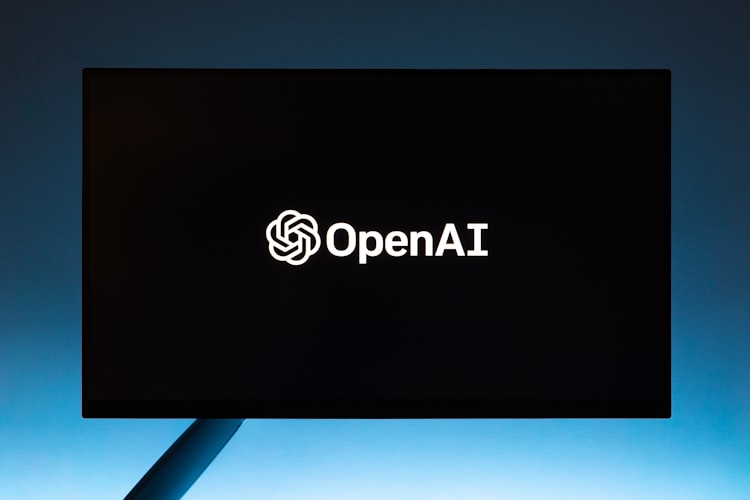What if Your Retail Business Could Talk? Discover How AI-Powered Chatbots Are Revolutionizing Customer Experiences!

In the rapidly evolving world of retail, businesses are increasingly turning to technology to enhance customer experiences, streamline operations, and improve sales. One of the most significant innovations in this space is the rise of AI-powered chatbots, which are transforming how retailers engage with their customers. Imagine a retail business that could talk to its customers 24/7, answer queries, recommend products, and provide real-time support—this is the future of retail, made possible through artificial intelligence.
The Role of AI in Retail Operations
The integration of AI chatbots into retail processes is no longer a futuristic concept—it’s happening now, and it’s reshaping the landscape of retail customer support. In a world where instant responses and seamless shopping experiences are the norm, customers expect more from businesses. Traditional retail operations often fall short in meeting these high expectations, especially in handling high volumes of customer queries across multiple channels.
AI-powered chatbots offer a solution by automating routine customer service tasks. Retailers that embrace this technology can improve their workflow efficiency, reduce response times, and significantly cut operational costs. These chatbots can handle common inquiries such as "Where is my order?", "Do you have this product in stock?", or "What are the payment options?" without human intervention, allowing employees to focus on more complex tasks.
According to a recent study by AIC, over 60% of retailers have already implemented or are in the process of implementing AI chatbots into their operations. These bots are capable of more than just answering questions—they’re learning from each interaction and becoming smarter over time, providing better support and tailored recommendations.
AI-Powered Retail Chatbots: Improving Customer Experience
Customer experience is paramount in retail, and AI retail chatbots have emerged as powerful tools to enhance it. These virtual assistants provide instant, personalized assistance across various touchpoints, whether it’s answering a product query on a website or suggesting items based on a shopper’s past purchases.
Retail chatbots are now being integrated into multiple platforms, including websites, mobile apps, and even social media. This omnichannel presence ensures that customers can receive support no matter where they are. Moreover, AI chatbots are designed to provide consistent, high-quality service across all channels. This has a profound impact on customer satisfaction and loyalty, as customers appreciate fast, accurate responses.
One great example is Sephora's AI chatbot, which acts as a shopping assistant by offering personalized product recommendations based on customer preferences. This tailored service not only enhances the shopping experience but also encourages repeat purchases, boosting Sephora’s overall sales.
AI chatbots are also capable of handling customer complaints or issues more efficiently than traditional customer service methods. Unlike human agents, who may struggle with backlogs or peak times, AI-powered systems can handle thousands of customer requests simultaneously without any delay. This ability to respond to customer needs in real time enhances trust and satisfaction, which are crucial to long-term customer relationships in retail.
The Future of Retail: AI and Automation
As AI retail chatbots continue to evolve, their capabilities are set to expand beyond customer service. The future retail landscape will likely see AI chatbots assisting in areas like inventory management, marketing automation, and even predictive analytics to optimize sales strategies.
In fact, forward-thinking retailers are already using AI-powered systems to predict demand for certain products, manage supply chains, and even automate marketing campaigns. AI’s ability to process vast amounts of data in real time is driving these changes, making retail operations more efficient and customer-centric.
Future retail will involve fully integrated systems where AI and machine learning work hand in hand to provide a seamless shopping experience. From virtual fitting rooms powered by augmented reality to personalized marketing campaigns based on browsing habits, the potential applications for AI in retail are vast and varied.
Case Study: Walmart and AI in Retail
One of the most well-known examples of a retail giant utilizing AI is Walmart. The company has integrated AI across various facets of its operation, from its customer-facing platforms to internal processes. Walmart uses AI-powered chatbots to enhance customer support by offering immediate answers to frequently asked questions. They have also implemented AI in their warehouses to predict stock levels and reduce shortages, which ensures that customers can find the products they need at any time.
This AI-driven approach has significantly improved Walmart’s operational efficiency, allowing it to stay competitive in the fast-paced retail industry. The success of Walmart’s AI initiatives demonstrates the tangible benefits of AI in retail, including enhanced customer service, streamlined operations, and improved sales performance.
How Retailers Can Implement AI Chatbots
Implementing AI chatbots in retail involves understanding your customer journey and identifying areas where chatbots can add value. Retailers should begin by analyzing the most common customer queries or pain points and deploying AI chatbots to handle these tasks.
For businesses looking to take advantage of AI, platforms like StayUpdated AI and Open Infotech offer insightful resources on the best AI strategies and how to implement them effectively. These platforms provide tools and strategies for retailers to seamlessly integrate AI into their operations, improving both workflow and customer satisfaction.
Benefits of AI-Powered Chatbots in Retail
To summarize, the implementation of AI shopping assistants offers multiple benefits for retailers:
- Enhanced Customer Experience: Instant, personalized support improves satisfaction and loyalty.
- Cost Efficiency: AI automates routine tasks, reducing the need for large customer service teams.
- Scalability: AI systems can handle thousands of queries simultaneously, providing round-the-clock service.
- Data-Driven Insights: AI chatbots learn from customer interactions, offering retailers valuable data to improve operations and sales strategies.
Conclusion
The future of retail lies in the hands of AI-powered technology. By incorporating AI retail chatbots into their operations, businesses can not only meet the demands of modern consumers but also stay ahead in a competitive market. As AI continues to evolve, its potential to transform retail is limitless, making it an essential tool for any retailer looking to thrive in the digital age.
For further reading on the latest AI trends in retail and digital marketing, check out Digital AI Journal for comprehensive insights and studies on AI’s role in shaping the future of commerce.
Related Links:
- Explore the benefits of AI chatbots in retail at AI Chat Assist.
- Stay updated on AI innovations with StayUpdated AI Bot.
- Learn more about AI-driven digital marketing strategies at Open Infotech Blog.



